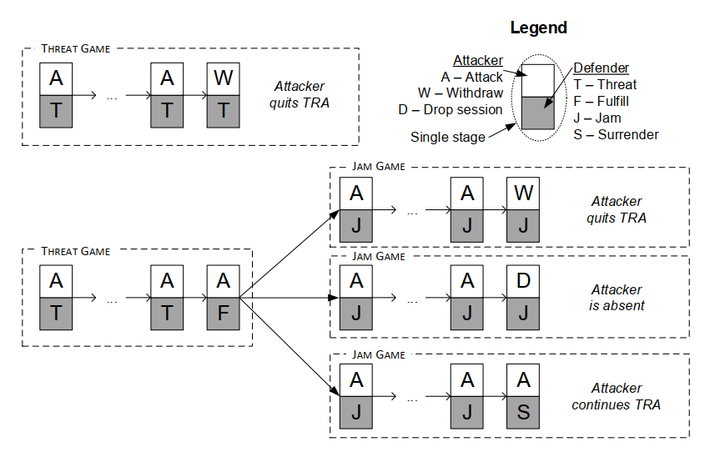Credibility of Threats to Jam Anonymous Traffic Remapping Attacks in Ad Hoc WLANs
 Possible scenarios of the THREAT/JAM game
Possible scenarios of the THREAT/JAM game
Abstract
In ad hoc networks, selfish stations can pursue a better quality of service (QoS) by performing traffic remapping attacks (TRAs), i.e., by falsely assigning their traffic to a higher priority class, which can hurt honest stations’ QoS. To discourage the attackers, honest stations can announce their dissatisfaction with the perceived QoS. If such a threat fails, a costly data frame jamming defense can be launched. We analyze the arising noncooperative game in which the attackers decide whether to continue a TRA when threatened and honest stations decide whether to start jamming when the TRA is continued. Using a Maynard Smith setting, we prove that the threats are credible to a rational attacker, who will then refrain from playing the game and remain honest.